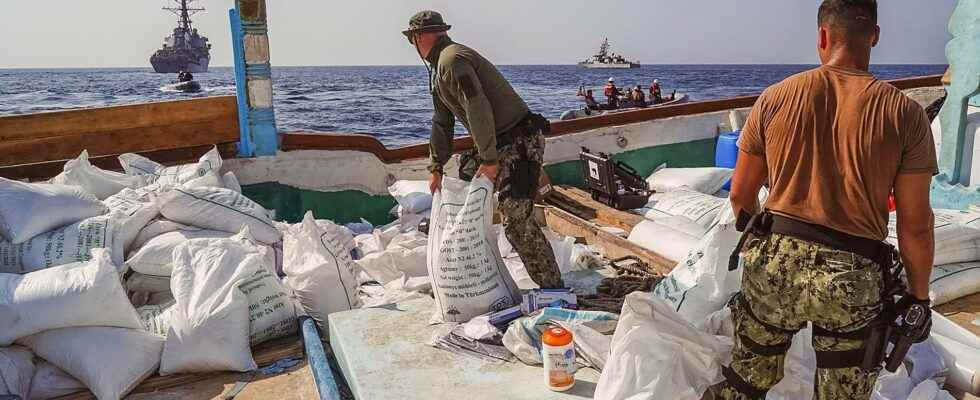Published: Less than 40 min ago
full screen
Next
American soldiers walk through the large seizure of a sailboat in the Gulf of Oman.
1 of 2 Photo: US Marine Corps/AP/TT
The US Navy has found “massive amounts of explosive material” on a sailboat traveling from Iran to war-torn Yemen.
The shipment contained 70 tons of ammonium perchlorate, an important component for making robotic fuel, hidden among sacks of fertilizer.
– The illegal transport of weapons from Iran to Yemen leads to instability and violence, says a spokesperson for the US Navy.
According to the United States Marine Corps, the amount of ammonium perchlorate seized would be enough to fuel about ten medium-range robots. Yemen’s Iran-backed Huthi rebels have used medium-range drones to attack forces allied with the country’s internationally recognized government and the Saudi-led coalition that supports the government in Sana’a.
Ingredient in explosives
The seizure takes place in parallel with renewed Iranian threats against Saudi Arabia, the United States and several other countries in connection with the ongoing nationwide protests in Iran. Tehran claims foreign powers are fueling the wave of protests, where demonstrators are calling for an end to the country’s hard-line religious dictatorship.
Neither the Huthi rebels nor Iran have commented on the details of the seizure, which was hidden in a shipment of 100 tonnes of urea – also known as urea or urea, a nitrogenous substance found naturally in urine. Urea can be used as fertilizer, but also to make explosives.
Humanitarian disaster
The vessel carrying the transport – a so-called dhow, a traditional wooden sailing boat – was stopped in the Gulf of Oman at the mouth of the Persian Gulf on 8 November. The boat was sunk by the US Navy on Sunday.
Since 2014, a UN embargo prohibits arms shipments to the Huthi rebels, but Iran has been repeatedly accused of shipping arms and materiel to the movement.
More than 150,000 people have been killed since 2014 in the war between the Iran-backed Houthi rebels and the Saudi-led coalition in Yemen. A UN-brokered ceasefire in April led to a de-escalation of violence, but the agreement expired in early October and fighting continues. The war in Yemen has created what the UN describes as the world’s worst humanitarian crisis right now.
